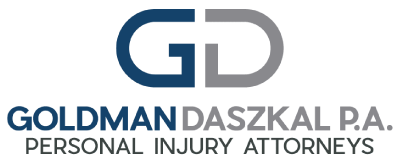A slip and fall accident can happen anywhere, anytime. Even when you’re paying close attention to your surroundings and observing all posted signage, you can become the victim of someone else’s negligence, leading you to start searching for slip and fall attorneys near me.
Not all slip and fall accidents result in a personal injury claim. For your injuries to be covered under personal injury law, the at-fault party must have been negligent in the matter. Negligence includes four main elements:
- The defendant had a duty of care toward you, the victim.
- The defendant breached that duty of care by acting or failing to act on the matter.
- The defendant’s breached duty of care directly caused your injuries.
- You were harmed or injured as a direct result of the breached duty of care.
To better understand these circumstances and guide you in knowing when to contact a personal injury attorney, we’ll highlight some of the most common types of slip and fall accidents in Florida.
Common Types of Slip and Fall Accidents in Florida
While many circumstances can contribute to a slip and fall accident, some scenarios tend to be the most likely causes of these accidents in Florida. Here’s a look at these common slip and fall accident types.
- Slippery floors: This condition could be caused by rain, mud, grass, a spill, a freezer malfunction, and much more. The key to slippery floor accident cases is whether the premises owner or staff knew about the poor condition and did nothing about it, or the conditions were there long enough that the premises owner should have known about the hazard. For example, during rainy days, a floor can get slippery very quickly. In those first few minutes after it starts raining, it’s not reasonable to think that a property owner can put up slippery floor signs and station someone at the front of the store to mop up after each customer comes or goes. But, after it’s been raining for a great deal of time, you can no longer say that the property owner and staff couldn’t know the floors would be slippery.
- Staircases and ramps: If you trip on a staircase, you don’t necessarily have a personal injury case. It’s easy to miss a step or misjudge the distance to the next step and trip. The premises owner has no liability in this case. However, there may be a personal injury case if there’s a maintenance issue with the stairs that may have gone unfixed or grossly unnoticed by the owner. For example, boards with wood rot, a loose stair, broken stair, or missing handrail might make for a condition where there is now the potential for a personal injury lawsuit.
- Uneven surfaces: Property owners must keep their property free of hazards for their workers and visitors. Failing to do so could leave them liable in a personal injury lawsuit. Some examples of uneven surfaces include ripped or bunched carpet, uneven bricks, or potholes outside. Once again, the property owner must have had a reasonable time to remedy the situation or block it off to staff and visitors.
- Poorly lit areas: You must be invited to the property in evening hours for poorly lit areas to apply. Trespassing after hours at a property and getting injured does not mean you can sue the property owner for your injuries. But if you’re a guest on a property with poor lighting, and the poor lighting leads you to fall and get injured, you could have a personal injury case.
Common Causes of Slip and Fall Accidents
There are three main causes of slip and fall accidents. These causes include:
- Water spilled on the floor
- Slippery floors due to recent waxing or cleaning
- Poorly maintained equipment that is leaking
Some of the most common locations for slip and fall injuries include:
- Restaurants
- Grocery stores
- Sidewalks and parking lots
- Business offices
- Private home of another person
- Parks and amusement parks
- Stadiums or arenas
- Nursing homes and retirement communities
What You Need to Know About Working With a Personal Injury Attorney
The most important thing to keep in mind when considering whether to discuss your slip and fall accident with an attorney is to know that most attorneys offer a free consultation to learn more about your accident.
Most personal injury attorneys work on a contingent basis. This means that if you don’t get a settlement, they don’t charge you fees. So an attorney will only take on a case if they really believe they can prove the premises owner or staff was negligent.
Goldman & Daszkal is a team of personal injury attorneys who know the ins and outs of personal injury lawsuits. Schedule a free consultation to learn more about how we can help you after you’ve been wrongfully injured.
